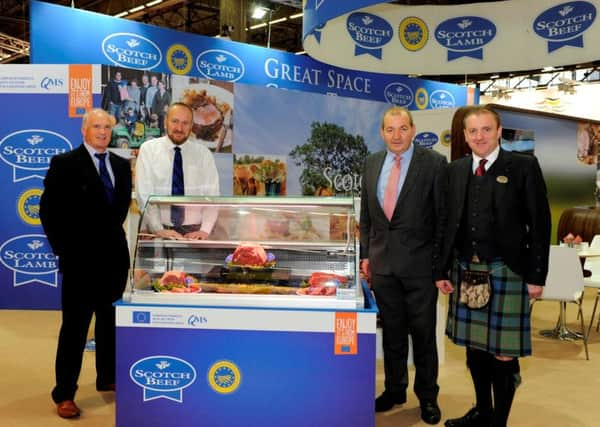Currency upheaval leaves exporters in buoyant mood
This article contains affiliate links. We may earn a small commission on items purchased through this article, but that does not affect our editorial judgement.


Speaking from the fair outside Paris, Frank Clarke from McIntosh Donald – one of the 11 Scottish firms using the Quality Meat Scotland (QMS) stand – reported more interest from buyers.
“The change in currency values since Brexit has produced more interest, both from existing customers and from potentially new ones,” he stated.
Advertisement
Hide AdAdvertisement
Hide AdHis company currently sell beef and lamb into Italy, France, Belgium and the Netherlands. The increase in demand is not only for top quality meat but also for “fifth quarter” product, consisting of other sellable parts of the carcase.
“This market has also taken a lift and we are selling into the Far East,” Clarke said.
But QMS chairman Jim McLaren was more cautious in his assessment of the market: “On the one hand, the weakness of Sterling is creating opportunities for us at home and abroad. In terms of lamb exports this currency situation is making the UK extremely competitive on the European market.
“However being price-competitive does not alone guarantee a market if demand is weak. France remains our biggest market for lamb but consumption in France has been under pressure for some time now and over the past six months exports to France have been down year-on-year.
“This cooling of demand is having an effect, not only on UK exports to France but also on exports to France from New Zealand and Ireland both of which have eased back.”
McLaren added: “UK exports to Germany, and some other northern European countries, have shown some strengthening over the past six months, but the volumes involved are not significant, compared with the decreased demand from France.
“In the beef sector, the current exchange rate is making beef imports to the UK less attractive and as a result of increased home demand we are seeing ‘back-filling’ meaning there is less product available for export.”
He described the impact of Brexit with long-term currency volatility as casting a “very unwelcome shadow of uncertainty over international trade”.
